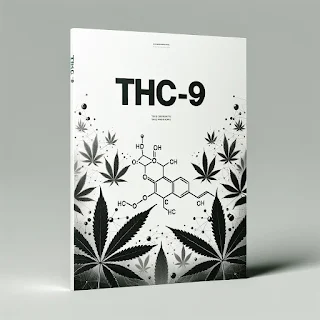PDF Available here:
MONCTON, NB, CANADA
April 30, 2024
**Author**: Marie Seshat Landry, marielandryceo.com, searchfororganics.com
**Objective**: This comprehensive study aims to explore the extensive potential and applications of Delta-9 THC (THC-9) across various life sciences fields. Conducted in Moncton, NB, Canada, the research focuses on generating actionable insights that could support the case for legalization and therapeutic use of THC-9 in the USA, the UK, NATO countries, and at the UN level.
**Key Insights and Actionable Information**:
1. **Therapeutic Applications**: The experiments cover a wide range of medical conditions, including chronic pain, autoimmune diseases, mental health disorders, and severe neurological conditions. The results are expected to offer robust data supporting the efficacy of THC-9 in managing and potentially improving these conditions.
2. **Impact on Public Health Policy**: Positive outcomes from these studies could serve as pivotal evidence for health policymakers. Demonstrating the benefits and safety of THC-9 can lead to reforms in drug policies, potentially categorizing THC-9 as a therapeutic compound rather than a controlled substance.
3. **Economic Implications**: Legalization and the medical application of THC-9 could stimulate significant economic growth through the pharmaceutical and biotechnology sectors. It could also reduce the financial burden on public health systems by offering more effective treatment alternatives.
4. **Innovation in Treatment Protocols**: Insights from the research may lead to the development of new, innovative treatment protocols that incorporate THC-9, either as a standalone treatment or in combination with other therapies, enhancing treatment efficacy and patient outcomes.
5. **Reduction in Opioid Dependency**: With THC-9 proving effective in managing chronic pain, there could be a consequential reduction in opioid prescriptions and related side effects and dependencies, addressing a major public health crisis, particularly in the USA.
**General Impact Forecast & Breakthroughs**:
- **Medical Breakthroughs**: Potential discoveries include the use of THC-9 in reducing the progression of chronic diseases and improving the quality of life for patients with severe conditions.
- **Legal and Regulatory Shifts**: Successful outcomes could lead to significant shifts in legal frameworks governing cannabis and its derivatives, influencing global policies and treaties.
- **Public Perception Changes**: As scientific evidence accumulates, public perception regarding the safety and utility of cannabis-related products could shift positively, leading to wider acceptance and use.
**Recommendations for Stakeholders**:
- **Healthcare Professionals**: To stay updated on emerging research for potential integration into treatment plans.
- **Policy Makers**: To reconsider current cannabis-related legislation in light of new scientific evidence.
- **Researchers**: To continue exploring unsolved questions surrounding THC-9, with a focus on long-term effects and treatment optimization.
- **Public Health Advocates**: To use this data to educate the public on the benefits of THC-9, combating stigma and misinformation.
**Conclusion**:
Marie Seshat Landry's "The 420 THC-9 Experiments" is poised to add significant contributions to the body of scientific evidence regarding cannabis. By potentially confirming numerous therapeutic benefits of THC-9, this research could play a crucial role in the future legalization and medical use of cannabis across major jurisdictions. This would not only advance medical science but also modify the legal landscape surrounding cannabis use globally.








